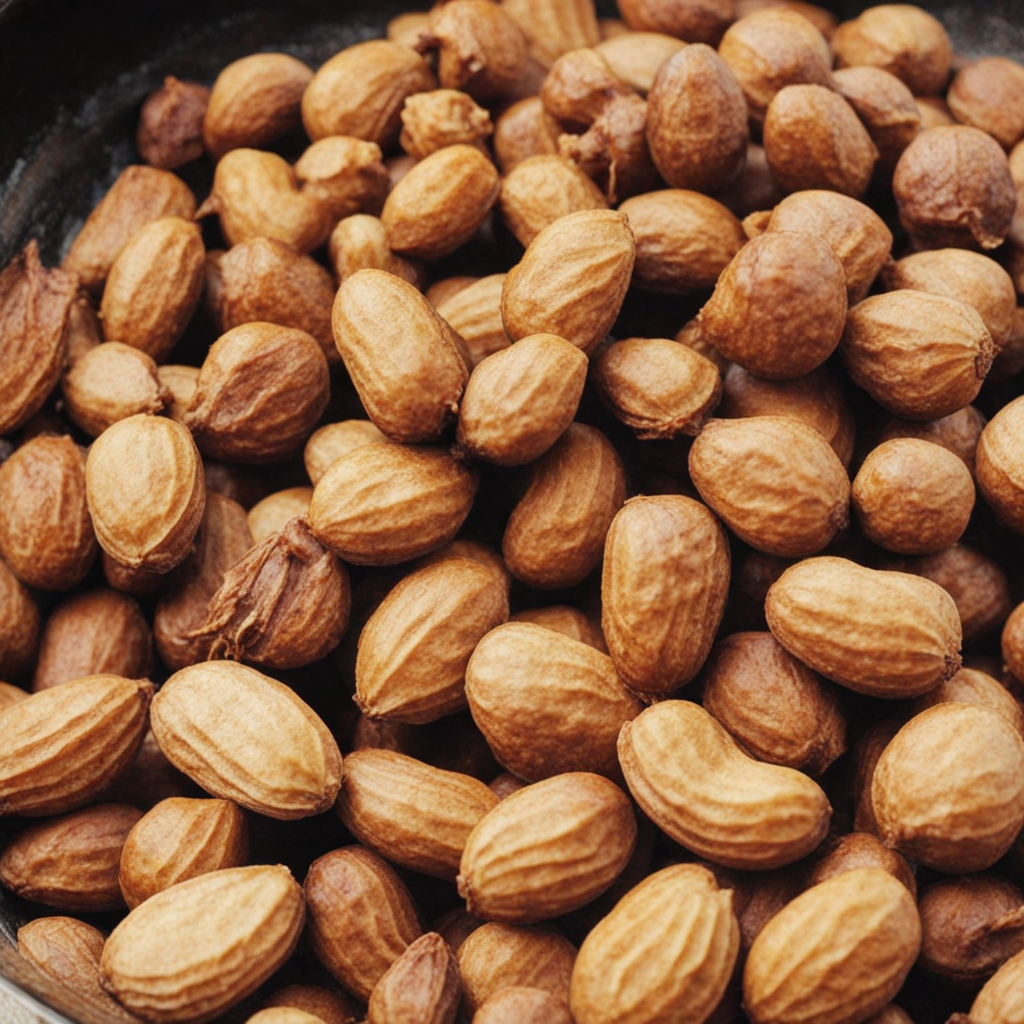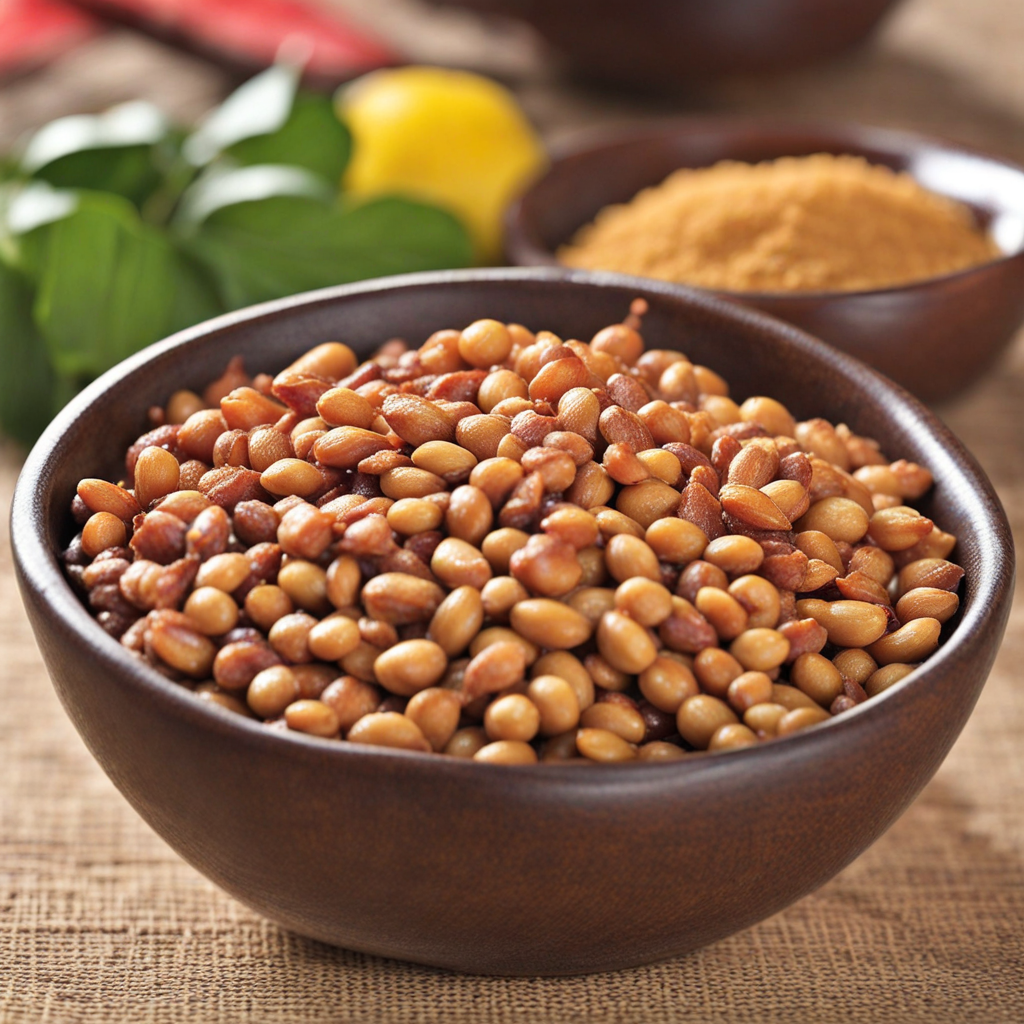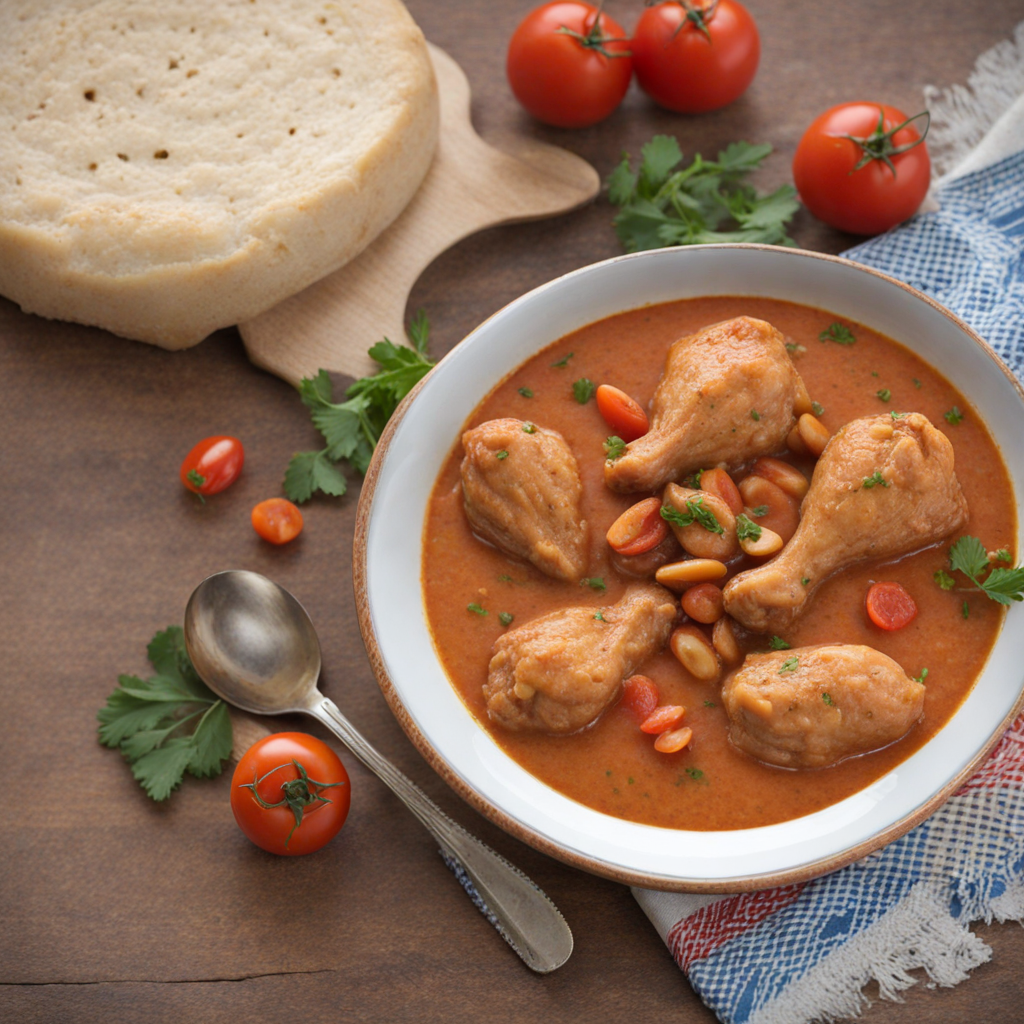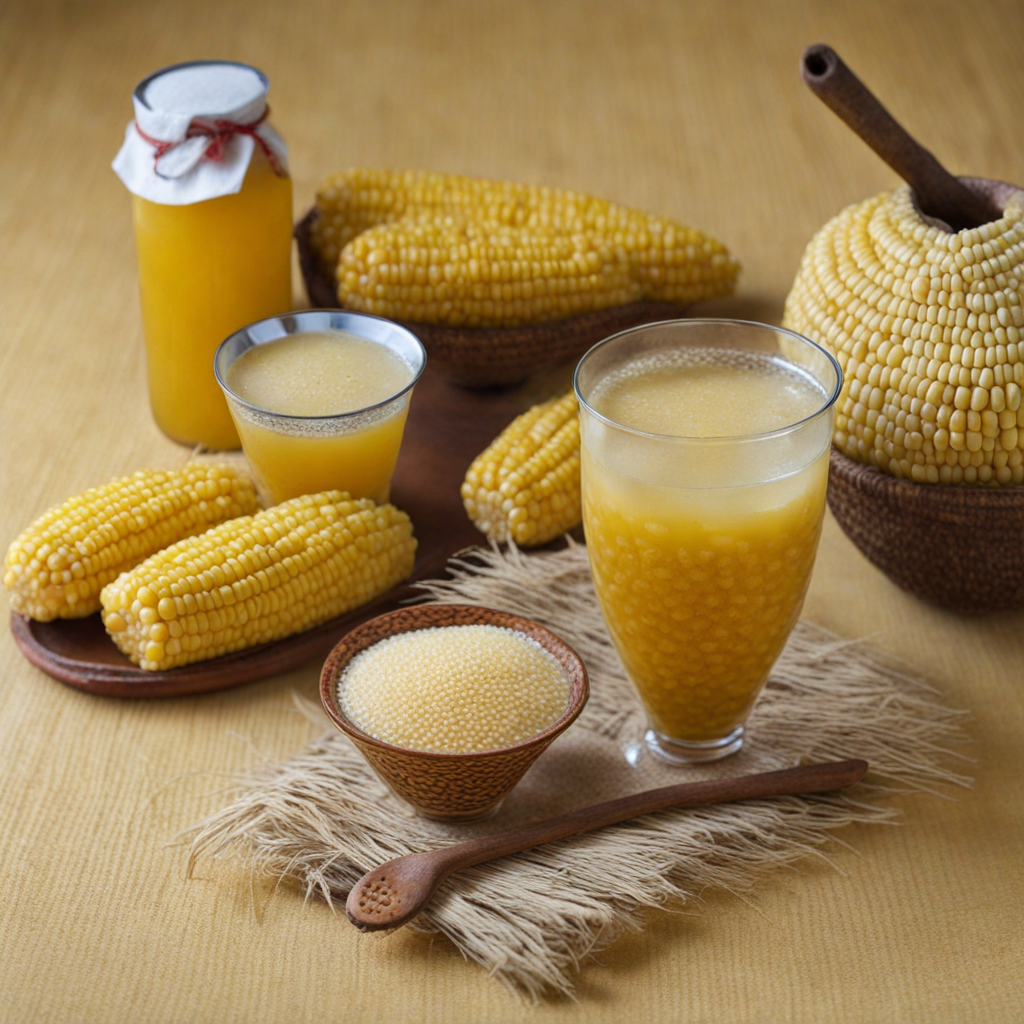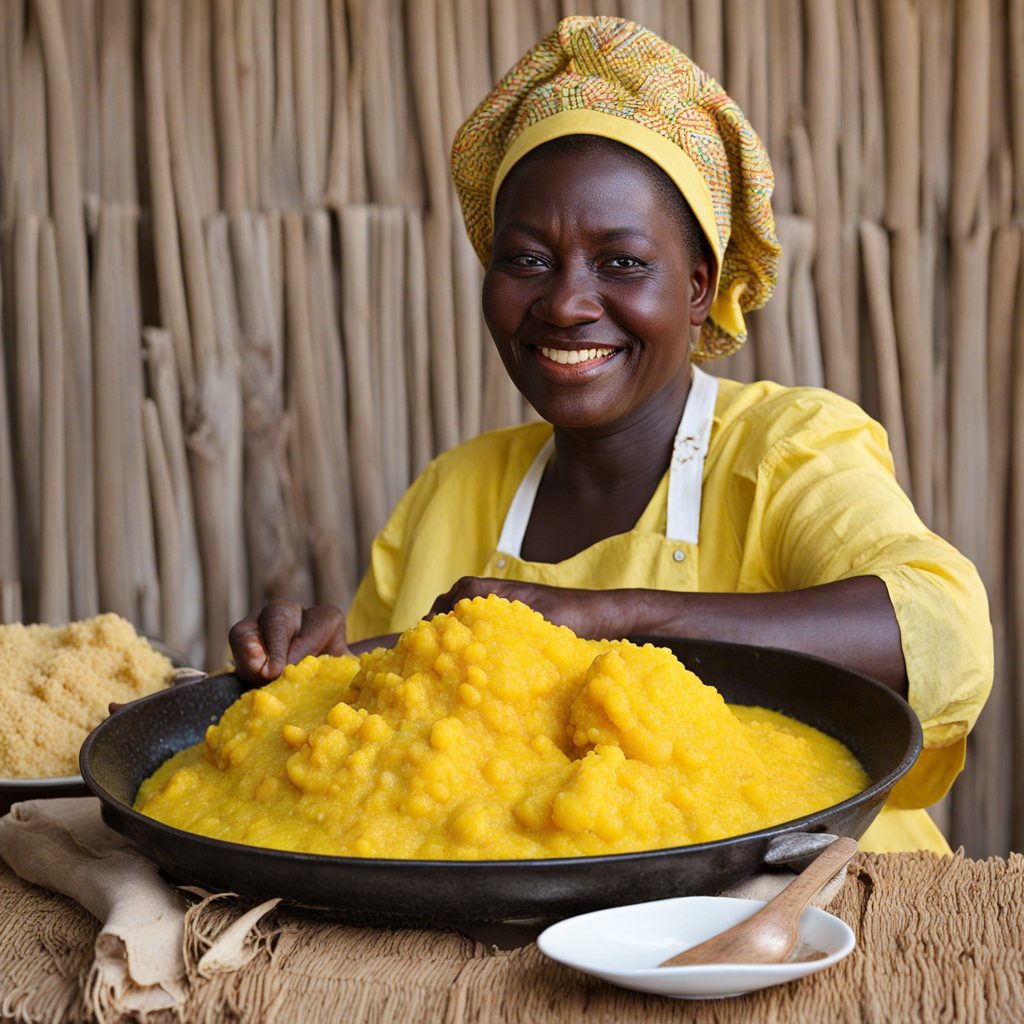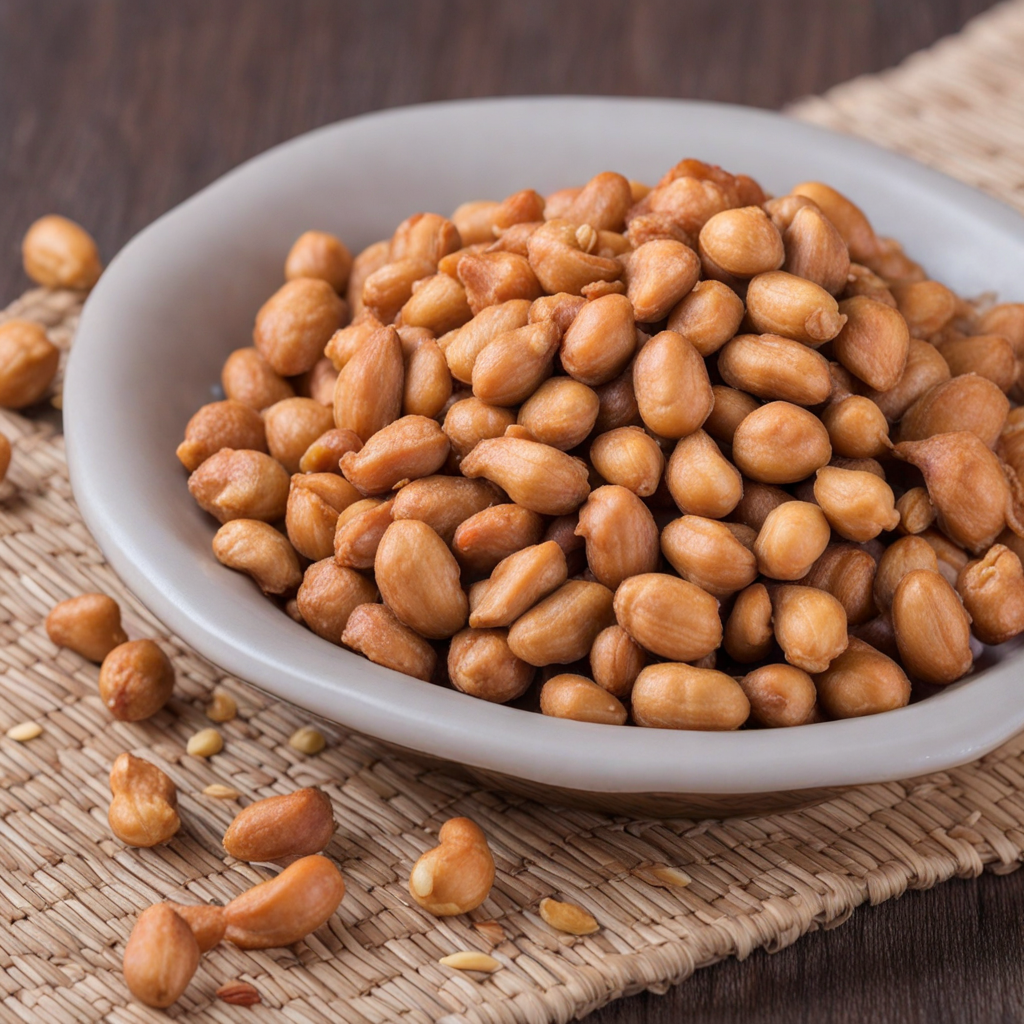Ginguba
Ginguba, a beloved delicacy from Angola, is a dish that showcases the rich culinary heritage of the country. At its core, Ginguba refers to roasted peanuts, which are often enjoyed as a snack or incorporated into various dishes. The peanuts are typically roasted to perfection, creating a delightful crunch that is both satisfying and aromatic. The process of roasting brings out the natural oils and enhances the nutty flavor, making them an irresistible treat for anyone looking to explore new textures and tastes. In addition to being a popular snack on their own, Ginguba can be used as a versatile ingredient in many Angolan recipes. It can be ground into a paste to create sauces, or sprinkled atop salads and stews for added flavor and nutrition. The earthiness of the peanuts pairs beautifully with local ingredients such as cassava, beans, and vegetables, making it a key component of the Angolan diet. The combination of crispy texture and rich flavor adds depth to dishes, inviting you to savor every bite. Ginguba is not just a food item; it represents the warmth and hospitality of Angolan culture. Often enjoyed during social gatherings and celebrations, sharing roasted peanuts brings people together, fostering a sense of community. Whether you are sampling them at a local market or enjoying them at a family gathering, the experience of tasting Ginguba goes beyond just flavor—it’s a journey into the heart of Angola's culinary traditions, where every handful encapsulates the spirit of the land and its people.
How It Became This Dish
The History of Ginguba: A Nutty Legacy from Angola Origins and Ingredients Ginguba, a beloved dish from Angola, is primarily made from peanuts, which are locally known as "ginguba." The name itself derives from the Kimbundu language, spoken by the Mbundu people of Angola. Peanuts were introduced to Angola by Portuguese colonizers in the 16th century, though they likely originated in South America. The legumes thrived in the Angolan climate, and over time, they became an integral part of the local diet, both as a staple and a key ingredient in various traditional dishes. The origins of ginguba can be traced back to the agricultural practices of the indigenous communities. Before the arrival of the Portuguese, these communities cultivated a variety of crops, including millet, cassava, and beans. The introduction of peanuts into their agricultural system marked a significant shift in their dietary patterns. Peanuts were not only a reliable source of protein but also enriched their diets with essential fats and nutrients. Cultural Significance Ginguba holds a profound cultural significance in Angolan society. In many communities, peanuts are synonymous with hospitality. Offering a dish containing ginguba or simply roasted peanuts is a gesture of welcome and friendliness. This nutty delight is often served at social gatherings, celebrations, and family events, symbolizing the bonds of community and the joy of togetherness. In addition to its role in social settings, ginguba also plays a part in traditional medicine. The Angolan people have long recognized the health benefits of peanuts, which are rich in vitamins, minerals, and antioxidants. They are believed to aid in digestion, boost immunity, and provide energy, making ginguba not only a delicious treat but also a wholesome food choice. Culinary Evolution Over the years, ginguba has evolved from a simple dish into a versatile ingredient in Angolan cuisine. Traditionally, it was prepared as a porridge or paste, often accompanied by cassava or maize. The preparation involved grinding roasted peanuts into a fine powder, which was then mixed with water and sometimes sweetened with sugar or honey. This dish was typically enjoyed as breakfast or a light meal. With the passage of time, the preparation methods and presentations of ginguba have diversified. Contemporary Angolan cuisine incorporates ginguba into a variety of dishes, ranging from savory to sweet. For instance, it is now common to find ginguba used in stews, sauces, and even desserts. One popular dish is "muamba de ginguba," a hearty stew made with chicken or fish, flavored with peanut paste and spices, showcasing the harmony between the nutty flavor of peanuts and the rich, savory components of Angolan cooking. Moreover, ginguba has found a place in modern culinary creativity. Chefs experiment with its flavors and textures, incorporating it into fusion dishes that blend traditional Angolan ingredients with global culinary trends. For instance, ginguba can be found in gourmet salads, desserts like peanut butter cookies, or even as a topping for ice cream, showcasing its versatility and adaptability. Ginguba in Festivals and Celebrations In Angola, food is often at the heart of cultural celebrations and festivals. Ginguba has a prominent role in various celebrations, such as weddings, harvest festivals, and national holidays. During these events, dishes featuring ginguba are not just food but are symbols of prosperity, abundance, and cultural heritage. One notable celebration is the "Festa de São João," which takes place in June. This festival, deeply rooted in Angolan culture, is marked by lively music, dance, and communal feasting. Ginguba is often featured prominently in the festive meals, highlighting its importance in uniting families and communities during significant occasions. Global Influence and Recognition As Angola has increasingly made its mark on the global stage, so too has its cuisine, including ginguba. The diaspora of Angolan communities around the world has introduced these traditional flavors to new audiences. In cities with significant Angolan populations, such as Lisbon, Paris, and London, restaurants specializing in Angolan cuisine have emerged, featuring ginguba dishes that resonate with both locals and Angolans abroad. The rise of gastronomy tourism has also spotlighted Angolan cuisine, with food enthusiasts seeking authentic experiences. Culinary festivals and events have begun to showcase ginguba, allowing chefs to highlight its unique flavor and texture. This growing interest has led to a revival of traditional cooking techniques and a renewed appreciation for local ingredients. Modern Adaptations and Health Trends In recent years, as health consciousness has risen globally, peanuts and ginguba have garnered attention for their nutritional value. In Angola, the health benefits of peanuts are increasingly recognized, leading to a resurgence in their popularity. Local farmers are promoting sustainable agricultural practices to cultivate peanuts, ensuring that this valuable crop continues to thrive in the face of changing environmental conditions. Additionally, modern adaptations of ginguba cater to health trends. Recipes that use less sugar or incorporate additional superfoods are becoming popular among younger generations. Smoothies, energy bars, and other health-centric snacks featuring ginguba are gaining traction, merging traditional flavors with contemporary dietary preferences. Conclusion The journey of ginguba from its origins in the agricultural practices of indigenous Angolans to its modern-day adaptations reflects the rich cultural tapestry of Angola. This nutty delight is more than just food; it encapsulates the spirit of community, tradition, and resilience. As Angola continues to grow and evolve, so too will ginguba, embodying the past while embracing the future. Its legacy is a testament to the power of food as a cultural connector, bridging generations and communities through shared flavors and experiences. Whether served in a traditional setting or reimagined in a modern dish, ginguba remains a cherished symbol of Angolan heritage, celebrating the richness of its history and the vibrancy of its culture.
You may like
Discover local flavors from Angola


